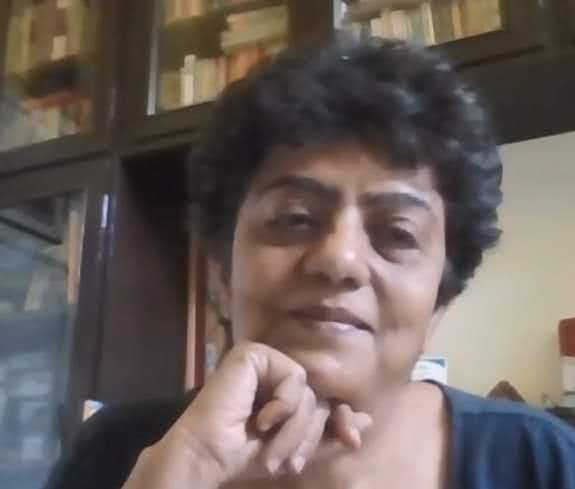
Most youngsters in Sindhi families do not speak their mother tongue, but can often understand it. There are many revival projects which teach Sindhi, and there is a growing population of committed teachers and enthusiastic students of all ages.
Saaz Aggarwal shares views with Sindh Courier
[Saaz Aggarwal is an independent researcher, writer and artist based in Pune, India. Her body of writing includes biographies, translations, critical reviews and humor columns. Her books are in university libraries around the world, and much of her research contribution in the field of Sindh studies is easily accessible online. Her 2012 Sindh: Stories from a Vanished Homeland is an acknowledged classic. With an MSc from Mumbai University in 1982, Saaz taught undergraduate Mathematics at Ruparel College, Mumbai, for three years. She was appointed features editor at Times of India, Mumbai, in 1989. Saaz Aggarwal was so kind to spare some time and share her views when I approached her with some questions through WhatsApp – Nasir Aijaz]
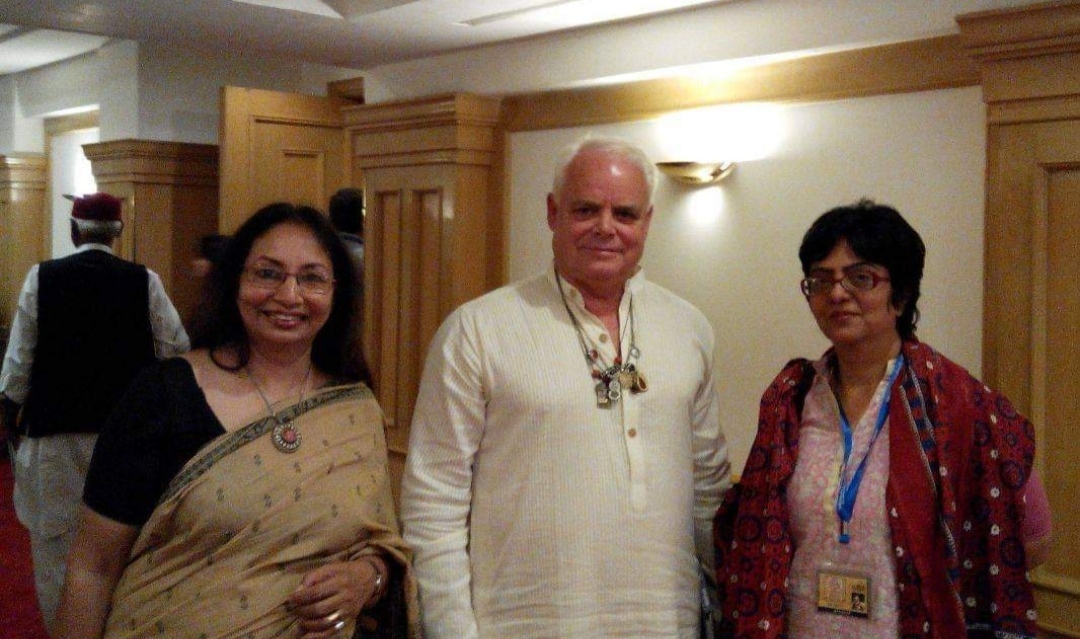 Q: What is the current situation of Sindhi language, literature and culture in India?
Q: What is the current situation of Sindhi language, literature and culture in India?
Most youngsters in Sindhi families do not speak their mother tongue, but can often understand it. Some are comfortable with this situation, but I’ve also encountered a lot of regret. There are many revival projects which teach Sindhi, and there is a growing population of committed teachers and enthusiastic students of all ages.
Asha Chand and her organization Sindhi Sangat are doing tremendous work to bring the community together. Her focus is on Perso-Arabic Sindhi but also every aspect of Sindhi culture. The Indian government also supports the Sindhi language, with the well-funded NCPSL, the National Council for the Promotion of Sindhi Language. We have many colleges which were started by Sindhis. They have always been open to all, and contributed to the education of generations of Indians. The late Nari Gursahani campaigned relentlessly and finally achieved ‘minority’ status for these colleges established by Partition refugees. They have instituted a requirement that students who take admission on this quota will study Sindhi. So there is hope!
Though there is a gap between the language spoken by the previous generations in Sindh and the Sindhis of today, the feeling of belonging remains strong. This is most poignantly clear when you experience the tremendous feeling of love and belonging, across generations, in an audience at a Sindhi music concert in India.
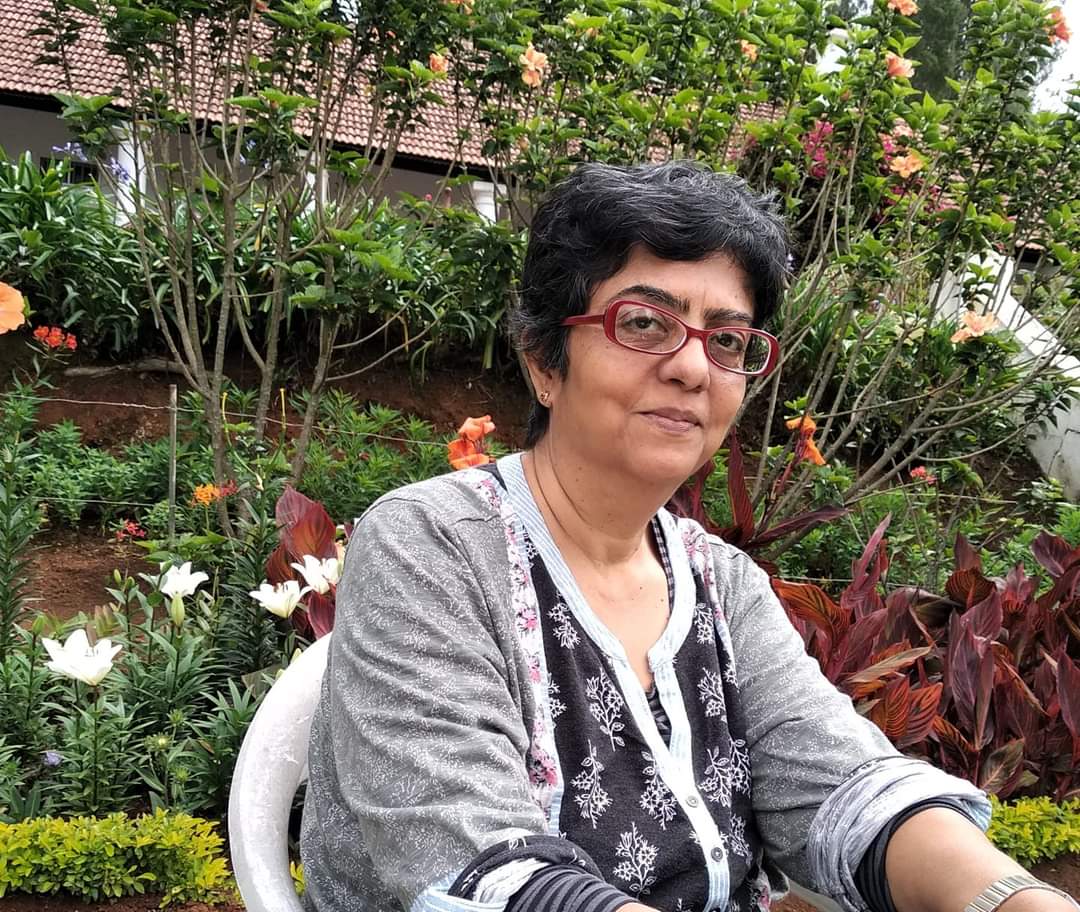 Q: I have noticed in certain articles authored by Sindhis in India contending that the Sindhi community in India is landless having no state/province of their own, because Sindh was not partitioned like Punjab in 1947. Some Sindhi writers have opined that the Southern part of Sindh, particularly the desert districts, should have been carved out as a separate state for Hindu Sindhis in India.
Q: I have noticed in certain articles authored by Sindhis in India contending that the Sindhi community in India is landless having no state/province of their own, because Sindh was not partitioned like Punjab in 1947. Some Sindhi writers have opined that the Southern part of Sindh, particularly the desert districts, should have been carved out as a separate state for Hindu Sindhis in India.
Do you think this approach/thinking is positive?
There is truth in what they say.
However, my observation indicates that most Sindhis really do not believe in ‘should have’. If you look around and see the kind of progress that has been made after Partition, despite having no state/province of their own, and the tremendous contribution to every location they have settled in, the opinion you have quoted may have truth in it – but it is not particularly relevant. Sindhis are a forward-looking, action-oriented, goal-oriented people.
I remember my mother Situ always being indignant at Gandhi’s idea that Sindhis should be shipped off to an island in the Andaman so that the rest of India would not be burdened by their presence. If that had been done, perhaps that island would have soon been competing with Hong Kong, Taiwan and Singapore for trade, infrastructure and lifestyle.
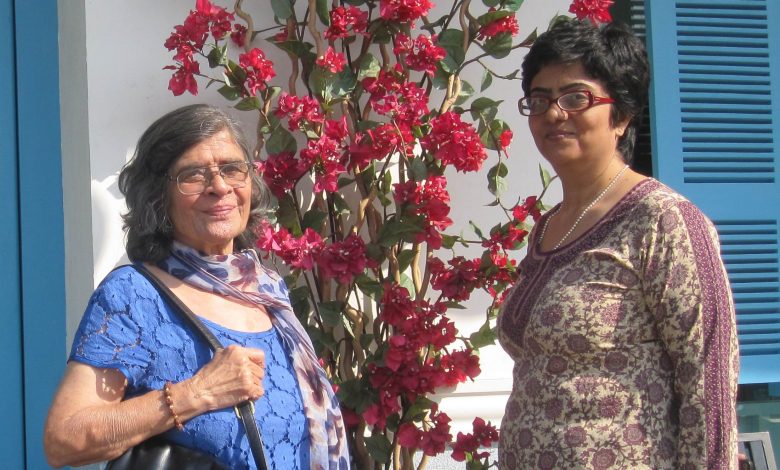
Q: In India, there is a general impression that all Sindhis are Hindu, which is not a fact. In Kachchh and Gujarat, there are hundreds of thousands of Muslim Sindhis settled since ancient times. Recently, some friends from Hur Jamaat (of Pir Pagara of Sindh) said that some four million Sindhi Muslim and other followers of Pir Pagara are settled in Kachchh and Gujarat who have not only a Khalifa (head) but a member of Indian parliament and state assembly is elected among them.
Moreover, the young generation of Sindhis in India and elsewhere around the world is unaware that there are Muslim Sindhis also in Sindh and other countries. I have personal experience as a Sindhi Hindu girl of Spain while sharing views on FB said, “You cannot be a Sindhi, as Nasir Aijaz is a Muslim name.”
Don’t you think the integration of Hindu and Muslim Sindhis in India would help strengthen them further?
Yes, integration of people across divides is always a positive, act which creates a synergetic and transformative force. And it is true that Kachchh, Gujarat and Sindh share a close-linked past and many cultural similarities.
However, when the Hindus were expelled from their ancestral homeland Sindh, the trauma took complex forms. One of these is the complete psychological denial of the place that was once their home, and the people with whom they once shared that home. I realized this when I interviewed my mother. She was 13 when Partition took place, and the incisive and complete separation from the land, the people, the language, the culture, with no chance of ever going back, and with the elders trying to move on by settling securely into new lives and forgetting what they had lost, it seemed as if those places were no longer real and existed only in her memory.
I’ve also often sensed the wariness Hindu Sindhis feel for their counterparts of the other, majority religion of their community. It arises suddenly, sometimes unexpectedly. The similarities are huge, and so is the outpouring of love and regret from the Muslims of Sindh for the Hindus they lost. But a dark specter of that irreplaceable loss lingers on, and remains to be dealt with.
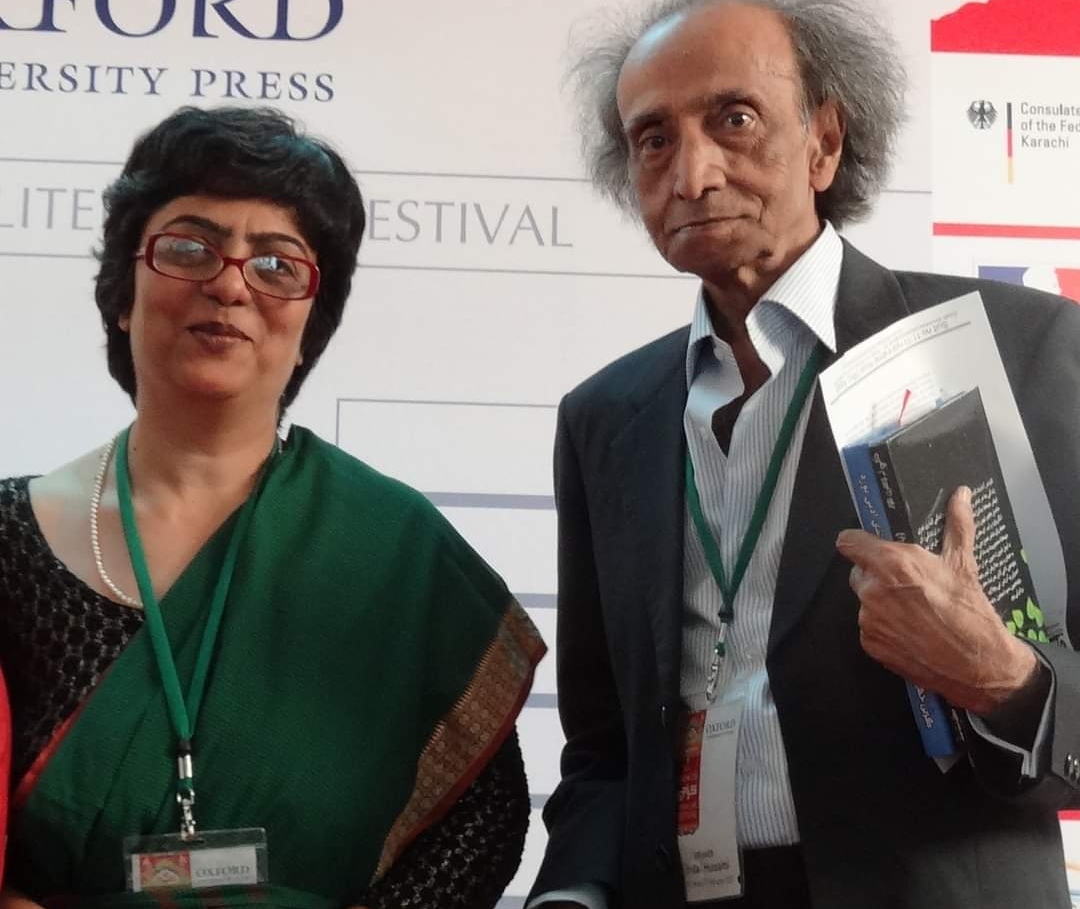
Q: No doubt Devnagri script is an ancient script of Sindhi language, but it has created a divide in Sindhis of India and left an adverse effect on efforts aimed at promoting Sindhi language and literature. How can this gulf be bridged? There must be a treasure of Sindhi literature in Devnagri script as is in Perso-Arabic script. Has any effort been made to transliterate the literature in respective scripts?
I have read that, when Devnagri Sindhi was introduced, it was done with a promise that ‘everything’ would be made available in the new-but-old script. Perhaps it turned out to be an impractical project, one that would require unlimited resources – skill, commitment, funds and so on – and was never completed. As for the literature produced in Devnagri Sindhi, we do have excellent writers and poets, but I really don’t know what the motivation would be for their output to be transcribed.
_______________